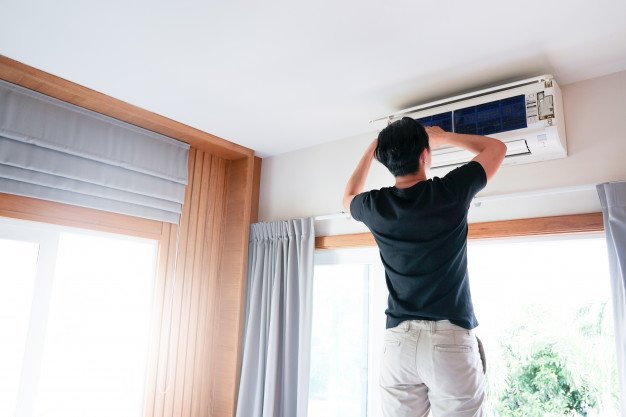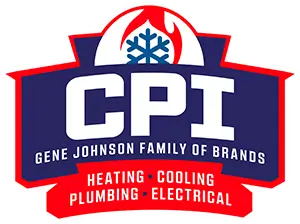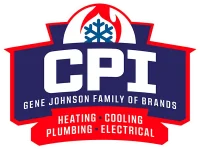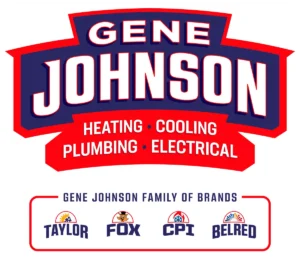Why Is My Air Conditioner Making A Noise?
Nobody looks forward to the sticky, swampy feeling of a Pacific Northwest summer heatwave. But at least we can all count on our trusty air conditioning units to serve up icy relief, right? Well, that refreshing oasis can start feeling more like a war zone if your cooling system suddenly starts bombarding you with loud, obnoxious noises out of nowhere!
From ghostly moans and clanking suits of armor, all the way to screaming banshees and industrial farm equipment explosions, ACs have no shortage of spooky sound effects to unsettle any homeowner. Of course, some operational noise is expected as those heavy-duty components huff and puff away. But how are you supposed to differentiate between reasonable rumbles versus legitimate omens of doom?
No need to feel like you’re trapped in a high-stakes round of Thermostat Roulette, Whatcom and Skagit County! This guide will break down the typical noise profiles for everything from compressors and condenser fans to refrigerant lines. Once your ears are trained on the standard whirs and whines, identifying rogue ruckus in need of professional help becomes much easier.
We’ll go over some quick DIY tricks you can try too for basic noise gremlins. But you’ll also learn when calling in the HVAC repair cavalry proves the wiser move to avoid way worse fates than just spooky noises. No homeowner wants to become noise-desensitized as system damage gets ignored!

Understanding Normal AC Noises
Every air conditioner makes some sounds when running – it’s just part of having all those heavy-duty components churning away to keep your home nice and cool. Getting an idea of what qualifies as “normal” noise levels helps you pick up on anything seriously out of the ordinary.
When your system first fires up after sitting idle, expect a bit of a ruckus for the first minute or so. The big compressor motor and condenser fan outside will make some louder humming and knocking noises as they slowly ramp up to full speed. It’s kind of like listening to a big rig truck laboring to get up a hill at first.
Once it finally hits a steady stride though, your AC’s sound profile should settle into more of a consistent, low-pitched hum you’ll barely even notice after a while. That low rumbling comes from the compressor constantly circulating refrigerant between the indoor and outdoor units.
You might pick up some intermittent groaning or pulsating noises too as the refrigerant changes state from liquid to gaseous form and back again. Small clicking sounds happen when the system switches between different cooling modes as well. Minor electrical buzzing and refrigerant gurgling through pipes add to the normal symphony too.
As long as the volume, pattern, and frequency of all those noises stay relatively consistent from cycle to cycle, you’ve got nothing to worry about. It’s when something suddenly sounds much louder, high-pitched, irregular, or downright screechy that you’ll want to investigate further!
Types of AC Noises That Indicate a Problem
Following up on our primer covering all those normal operational sounds you can expect from a properly functioning air conditioning system, we now need to equip you with the know-how to identify potentially troublesome noises indicating an emerging issue or component failure. As we discussed earlier, any sudden deviations from your AC’s baseline noise profile could serve as an early warning sign allowing you to get ahead of larger breakdowns before they occur.
Banging
That harsh, jarring “bang…bang…bang” isn’t just your AC throwing a hissy fit – it frequently stems from an obstructed blower fan blade violently striking the housing as it struggles to spin. Those aggressive impacts from a stuck blade will only worsen over time until the motor seizes entirely. Banging can also indicate loose paneling coming undone and wildly rattling around within the unit.
Clanking
While slightly more melodic than banging, a repetitive “clank…clank…clank” usually signals an internal component like a bent fan blade rhythmically striking the exterior housing. This often occurs as blades become progressively warped from repeated temperature cycling over years of service life. Rattling piston rods within the compressor can create clanking too as they dislodge from proper positioning.
Clicking
Some gentle clicking during startup and cycling transitions falls into that acceptable “normal” noise category we outlined earlier. But frequent, pronounced clicking points to electrical system faults from worn relays or contacts sticking – potentially disrupting power flows to critical components. Failing capacitors responsible for providing those big motor-starting jolts can manifest as clicking too.
Buzzing
Constant electrical buzzing or droning sounds shouldn’t be ignored – those indicate deteriorating insulation allowing wires and terminals to arc electricity inconsistently. Buzzes emanating from motor housings often mean critical bushing and bearing components are completely shot too. Either way, further operation invites potentially hazardous electrical shorts or fires.
Squealing
Inarguably one of the most unnerving sounds for homeowners, that piercing “squeeeaaallll” usually stems from advanced bearing or belt failures forcing metal-on-metal contact as components rub together unlubricated. At this stage, excessive friction has already begun scoring shafts and irreparably damaging interior surfaces if the system isn’t shut down immediately.
Rattling
While relatively tame compared to banging, any repetitive rattling originating from within your AC points to internal fasteners, coil housings, paneling, or even entire blower assemblies coming loose. All those unsecured pieces rattle haphazardly every time the system cycles on/off.
Hissing
You’ll occasionally detect soft hissing as refrigerant circulates through the copper pipelining. However, any loud sustained hissing or sucking sounds indicate a potentially dangerous refrigerant leak springing somewhere. As precious refrigerant depletes, your AC’s cooling capabilities degrade rapidly in correlation before inevitably failing altogether if leaks persist.
Humming
Your AC’s normal operating hum comes from the compressor and fan motors humming away as they churn through cooling cycles. But an excessively loud humming noise frequently points to imbalanced compressor operations from failing bushings or mounts causing excessive vibrations that quickly damage surrounding housings too if left unchecked.
Grinding
Arguably one of the most chilling noises an AC can produce, that harsh metal-on-metal grinding gets your compressor sounding like it’s chewing through a mouthful of pennies. Usually resulting from worn bearing surfaces or a malfunctioning piston rod, any griding guarantees internal scarring and shavings steadily contaminating your entire refrigerant line unless shut down immediately.
Whistling
While normal AC pulsations can create periodic soft whispers, a high-pitched whistling likely indicates either refrigerant or air leaking from a newly formed breach somewhere within the copper tubing, coil housing, or even duct system itself. That whistling occurs as pressurized gaseous refrigerant or air rapidly escapes through those tiny openings.
Recognizing when abnormal sounds start deviating from your system’s baseline allows you to quickly investigate sources before minor issues potentially escalate into severe breakdowns and major repair bills. Trust your senses – they’re often the first indicators that something’s awry!
Quick Fixes for Simple AC Noise Issues
For some of those more straightforward noises we just covered like mild rattling, clicking during start-up, or intermittent buzzing, a little do-it-yourself troubleshooting can sometimes restore blessed silence before having to summon professional HVAC backup. Before grabbing your phone to schedule that service call, there are a handful of quick fixes worth investigating first for common noise culprits.
If you’re encountering persistent rattling sounds, start by carefully giving your air conditioner’s exterior a gentle shake to see if any outer paneling, grills or coil housing seems loosely vibrating around. If you can pinpoint where that rattling originates, try carefully securing any fasteners or components that appear dislodged using a nut driver or drill. Just don’t overdo anything and strip screws!
For electrical clicking or buzzing-type noises, tips like re-seating any partially disconnected wiring harnesses onto their terminals or trimming away stray wire strands arcing across hot components can sometimes restore connections temporarily. Spraying a little penetrating lubricant onto stuck contactors may unstick them too.
While not a permanent fix, you can sometimes silence minor squeaking and grinding sounds by carefully lubricating visible bearing surfaces, motor shafts, and any accessible moving parts using a synthetic lubricant. Just spritz or dab on a little lube wherever any metal components appear to be rubbing against each other. This buys time for a proper bearing/bushing replacement.
If your system only seems to make slight whirring or whining noises when powering on from idle cycles, the issue could simply be traced back to hardened grease within those motors or actuators slowing them down. Try applying some shielding blanket wrap insulation around noisy housings to help dampen whining while you schedule that eventual servicing.
For any noises accompanied by visible refrigerant leaks, failed start relays, or electrical problems that pose shock hazards – resist the urge to keep DIYing. These require certified HVAC expertise to prevent worsening damage. But addressing minor cases of loose hardware, dried-out bearings, or electrical connections can provide affordable silence while you schedule professional care.
How to Deal With More Serious AC Noise Issues
Unfortunately, not all abnormal air conditioning noises stem from easily-resolved sources like loose panels or dried-out bearings that some affordable lubricant or tightening can temporarily silence. For any persistent ruckus accompanied by telltale signs of internal mechanical breakdowns or electrical system faults, professional intervention proves absolutely essential before potentially dangerous situations manifest.
If you’re picking up any hints of loud internal grinding, shrieking metal-on-metal squeals, or aggressive clanking originating from within your outdoor compressor housing, those sonic red flags could signal serious issues around thrown rods, failing bearings, or other core component failures already inflicting permanent damage. Continuing operations will only worsen scoring and disperse those metal shavings farther through the entire system. Your gut reaction of powering everything down proves wise!
Anytime you detect hissing, sucking, or whistling noises potentially pointing to a compromised refrigerant line or coil breach, professional assistance also becomes paramount for locating and then properly repairing that leak using EPA-approved reclamation practices. Refrigerant gas proves both toxic and an environmental hazard if simply vented out, so certified HVAC technicians must handle those scenarios by the book.
The same caution applies to any persisting loud buzzing, arcing, or electrical system clicking that could hint at hazardous loose wiring connections carrying live current. Rather than risking potential shocks or circuit fires from further amateur prodding, pulling the main disconnect shutoff switch and contacting certified repair technicians ensures safer diagnostics occur.
In scenarios like internal bearing damage, control board failures, or compressor lockups requiring entire assembly overhauls or replacements, relying on expert problem-solving also just makes the wisest economic sense. Without understanding all interrelated symptoms, you risk improperly identifying root causes – which then leads to repeatedly dumping money into misdiagnosed band-aid fixes over and over again instead of a permanent repair solution.
So while there are certainly some straightforward noise culprits homeowners can sometimes remedy themselves using basic tools and affordable lubricants, recognizing when to call in the professionals ensures total peace of mind. Why risk compounding expensive breakdowns any further when certified expertise provides such swift, lasting resolutions?
Risks of Ignoring AC Noises
We’ve outlined some straightforward noise culprits you can potentially solve through basic DIY troubleshooting methods like tightening hardware and bearing lubrication. We’ve also covered scenarios where persisting ruckus accompanied by other concerning symptoms like refrigerant leaks or electrical arcing demand professional HVAC expertise before situations escalate.
But what if you consciously choose to ignore those abnormal rumblings, scratches, and high-pitched screeches your air conditioner starts unexpectedly exhibiting one day? While wilfully stuffing fingers into your ears might provide short-term peace from aural assault, that blissful ignorance threatens serious unintended consequences too.
For starters, any rattling, grinding, or clanking sounds stemming from internal mechanical components like blower motors, pumps, and blades indicate excessive friction is already steadily eroding surfaces. Those depositing metal shavings then start circulating through your entire refrigerant line system with time – risking contamination-induced compressor burnout if not flushed thoroughly.
Out-of-sight refrigerant leak sources announced by hissing keep depleting charge levels critical for efficient heat transfer too. Refrigerant losses don’t just prevent proper cooling – they drastically spike energy costs while you’re running an imbalanced system on fumes. You’re paying more for diminishing returns.
Electrical buzzes and arcing occasionally brushed off as “just bad bearings” could eventually spark house fires from circuit shorting if live wires ground out. Ignoring clearly failing components also promotes domino effects – added strain on still-functioning pieces accelerating their deterioration in turn.
But perhaps the biggest risks come from subjecting your household to the ramifications of total system failures sure to arrive once ignored noises crescendo into an eventual compressor lockup, refrigerant pump seizure, or circuit board meltdown. At that point, you’re facing astronomical replacement costs on top of sweltering through weeks’ or months-long downtimes waiting on parts and labor.
So while a little DIY silence might temporarily make that noisy air conditioning ruckus easier to stomach, investing in prompt professional diagnosis and repairs ultimately protects your comfort, safety, and finances best in the long run. Don’t let unfamiliar noises become an unpredictable wrecking ball to your household serenity!
Reclaim Your Home’s Peaceful Oasis with CPI Plumbing & Heating
Dying to reclaim some peaceful quiet from your home’s increasingly noisy air conditioning system? Stop waging a losing battle against that disruptive symphony of squeals, rattles, and clanks by calling in the certified technicians at CPI Plumbing & Heating!
With finely-tuned diagnostic expertise earned over decades of HVAC experience, our team can quickly cut through even the most bewildering acoustical chaos to uncover the root of the problem. From ill-tracked bearings and refrigerant leaks to electrical faults and failing compressors, no noise proves too complex or subtle for pro ears.
More importantly, CPI’s specialists prescribe comprehensive air conditioning repairs that restore pure harmonic cooling bliss – not just temporary Band-Aid fixes bound to disintegrate. You can expect thoroughness too, with components precisely calibrated and refrigerant lines flushed for premium airflow.
Don’t resign yourself to another summer suffocating under your AC’s noisy, commotion-filled reign. Call the experts at CPI today at (360) 822-9306 and let our experts orchestrate a masterfully chill, quiet sanctuary once more!


